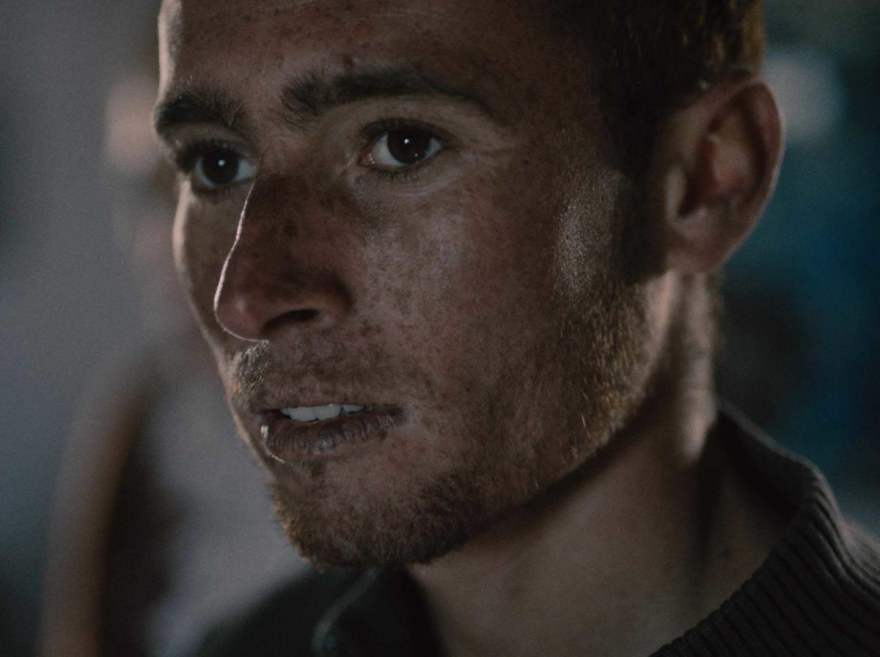Dinner with Brotherhood
An interview with Meryam Joobeur, director of Brotherhood
Why were you interested in a father-son relationship and do you have further projects on this subject?
To answer this question I have to contextualize the more political and social aspects of Brotherhood, which is the rise of ISIS. I feel that the emergence and dominance of ISIS is a product of toxic masculinity. The masterminds behind ISIS knew how to manipulate the insecurities and frustration of thousands of men with such alarming proficiency that these men were willing to leave their homes and travel hundreds of miles to join their ranks. I felt that exploring the microcosm of one father-son relationship in Brotherhood could allow me to reflect on how these insecurities and frustrations can emerge. I strongly believe that when trying to find a cure for a diseased system, we need to look at the smallest unit in that system. In the case of the rise of radicalization, we need to look at family units, the values that are instilled in young people, particularly boys, by their families and communities. As for future projects, I’m currently exploring the possibility of turning Brotherhood into a feature. However I am considering changing the perspective from father-son relationships to another perspective!
How did you create tension and silence in the film?
Tension and silence were achieved through a combination of framing, editing rhythm and sound design. I knew I wanted to create space for the emotions that go “unsaid” in the film since I wanted to explore the complexity of communication – when too much or too little is said and how this can have tragic repercussions in people’s lives.
Why did you set the story in a remote area?
Brotherhood is set in a remote region in the north of Tunisia called Sejnan where a lot of the small villages still don’t have running water. I first discovered this region during a road trip in winter 2016 and fell in love with the lush and diverse landscape of rolling green farmland, pine forests, and sea. It was during this road trip in 2016 that I had the chance encounter the three redheaded brothers Malek, Chaqer and Rayaan who acted in the film. I met the brothers on the side of the road as they led their sheep to graze and was struck by the contrast of their unique faces filled with freckles against the green landscape. I was further fascinated with this region when I learned that Sejnan had experienced a surge of radicalization post the Tunisian revolution in 2011 that ousted the dictator Ben Ali. A higher than average percentage of men from Sejnan had gone to Syria. I couldn’t help but ponder what it would be like to grow up in such a pristine and isolated region and find yourself planted in the brutality of ISIS. I felt that setting the film in such a natural landscape could also underline how unnatural war and ISIS are.
Did you do research on young Tunisians leaving the country and their motivations?
Through researching the subject of Tunisian foreign fighters for ISIS I discovered that there isn’t a clear “profile” for the type of Tunisian man or woman who has joined ISIS. They all come from diverse socio-economic backgrounds; there have been sons and daughters of upper-class families who have joined ISIS as well as impoverished and socially frustrated men and women.
Did you also do research on war fighters returning home and the reconnection to those left behind?
Yes, I paid particular attention to the testimonies of the family members that were left behind. These testimonies were heartbreaking because the emotions they felt were so conflicting – betrayal, shame, heartbreak, desperation… I tried to capture this turmoil through the ensemble of family members in the film.
Would you say that the short film format has given you any particular freedom?
What I loved about telling the story of Brotherhood as a short film was the challenge of having to quickly get to the heart of a complex situation. I was forced to really dissect the elements of filmmaking – scriptwriting, directing, editing, etc – and find the most efficient way to tell the story while doing justice to each of my characters’ journeys.
Brotherhood is being shown in International Competition I2.








